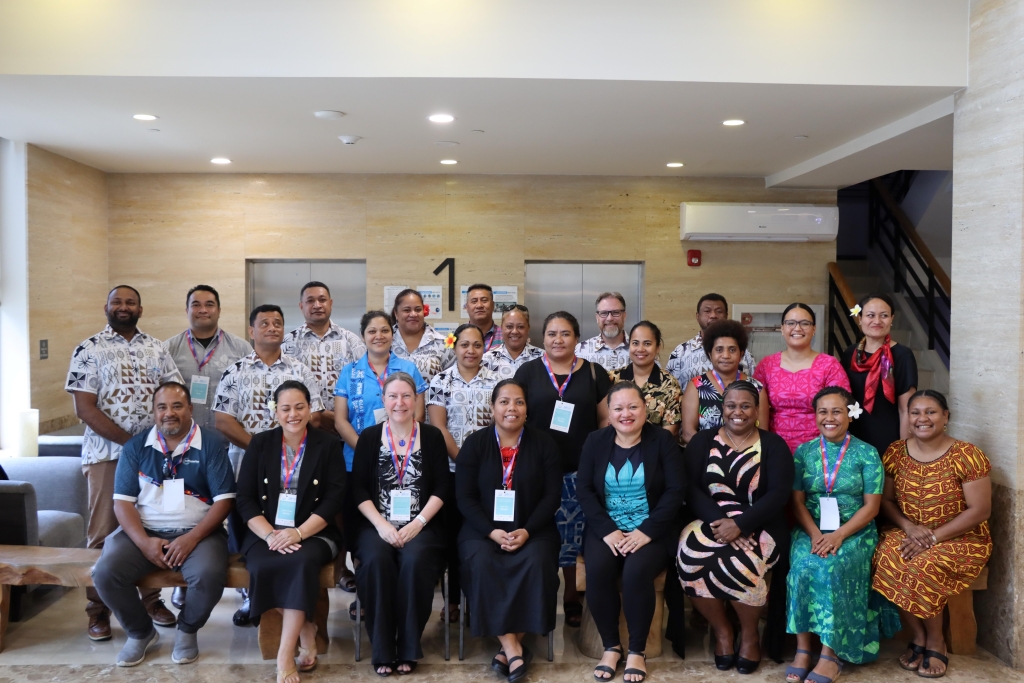The extraordinary meeting of the Conference of Parties (COP) to the Waigani Convention made history today as Parties to the Convention adopted its first-ever amendment marking a significant step toward aligning the Convention with international efforts to combat plastic waste.
The Waigani Convention, a regional treaty aimed at tackling hazardous waste and other pollutants in the Pacific region, has long been a crucial instrument for environmental protection and sustainability.
The Convention is a mirror of the Basel Convention, which adopted amendments to Annexes II, VIII and IX with the objectives of enhancing the control of the transboundary movements of plastic waste and clarifying the scope of the Convention as it applies to such waste.
When these amendments came into force on 1 January 2021, there was a disjuncture between the types of wastes covered by both conventions. Sensing the potential impact this development may have on the Pacific, Parties to the Waigani Convention requested a Working Group at COP-11, to undertake intersessional work to adopt the Basel Convention plastic waste amendments.
“Plastic waste poses one of the gravest threats to our oceans, marine life, and our very way of life. These amendments recognise the urgency of addressing plastic waste more holistically and effectively ensuring that the Pacific region remains resilient, protected, and forward-thinking,” said the Director of the Waste Management and Pollution Control Division at SPREP, Anthony Talouli in his opening address.
“The Working Group was also tasked with devising a mechanism for adopting future amendments to the Basel convention so Parties will also deliberate on this proposed amendment today. The proposal for an automatic adoption mechanism for future amendments to the Basel Convention signals our intention to remain agile and responsive in the face of evolving global environmental challenges. This is not just about future-proofing our Convention; it’s about safeguarding the future of our Pacific region,” he added.
The amendments introduce stricter controls on the international trade in plastic waste. Previously, many mixed and contaminated plastic wastes could be freely traded without the controls applied to other forms of hazardous waste. With the amendments, only clean, uncontaminated plastic waste that is ready for recycling can be traded without these controls.
The amendments also require that exports of plastic waste can only proceed upon receiving a prior informed consent from the importing country. This mechanism will ensure that countries are well-aware and have given express permission before plastic waste enters their borders.
“As we deliberate, may we be guided by the spirit of unity, foresight, and the greater good. Let’s continue to be the beacon of hope and the embodiment of regional cooperation,” said the Vice President of the Convention, the representative from Kiribati, Teniti Aro Taam.
The meeting precedes a series of Waste Management and Pollution Control related meetings happening in Koror, Palau from 12-20 October, 2023.
The Pacific Preparatory Meeting for the 5th Meeting of the Conference of the Parties to the Minamata Convention (MC COP-5) on Mercury, the Extraordinary Meeting of the Conference of the Parties to the Waigani Convention, the GEF ISLANDS Pacific and Pacific Ocean Litter Project Consultation Meetings, and the Pacific Preparatory Meeting for the 3rd session of the Intergovernmental Negotiating Committee (INC-3) on Plastic Pollution is held in Koror, Palau from 12-23 October, 2023.
The meetings are hosted by the Government of Palau in partnership with the Secretariat of the Pacific Regional Environment Programme (SPREP) and financial support from the Government of Australia, the Global Environment Facility (GEF), the United Nations Environment Programme (UNEP) and the ACP MEAs 3 Programme.
SOURCE: SPREP/PACNEWS














